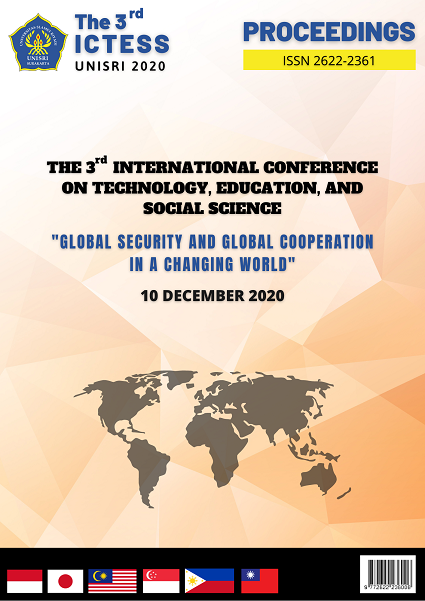Digitalization and Human Security: State Border Management Strategies in the Era of Industrial Revolution 4.0 A Study Conducted in Natuna District, Indonesia's border with Vietnam, Malaysia, Cambodia and Singapore
Abstract
Indonesia is the fastest-growing country in digital adoption comparing to Brazil and China, as McKinsey's research report published on February 11, 2019. These facts and data were obtained from the research, which involved 17,000 people in 15 countries. The Covid-19 pandemic that has spread across the world, including Indonesia, promotes digital transformation and acceleration by changing ways to interact, learn, and work. As the largest archipelagic country in the world of 17,491 islands, Indonesia still has a wide digital divide. Internet access is still a luxurious thing and rare, especially for the islands of Natuna District on the state border. On the other hand, the government seeks to promote connectivity inclusion by providing internet access for 4,000 villages and sub-districts in 3T areas (disadvantaged, frontier, and outermost). It is needed various approaches to be strategies for managing state borders in the era of the industrial revolution 4.0. The theory used was state border management theory, human security, and theories related to digitalization. The methodological approach used was qualitative, with the expected research results is to provide solutions for border management strategies. Besides, a multidisciplinary approach is a characteristic of this research. Keywords: State Border Management, Digitalization, Human Security.Downloads
Published
2021-02-05
Issue
Section
Artikel

